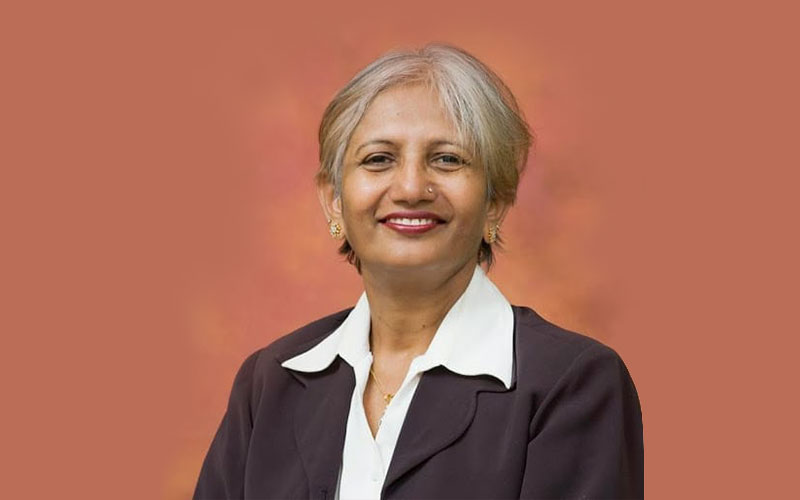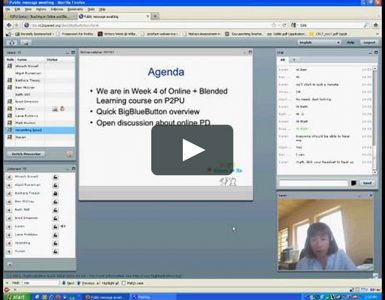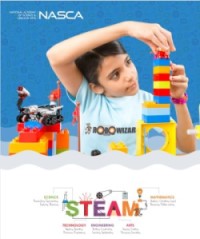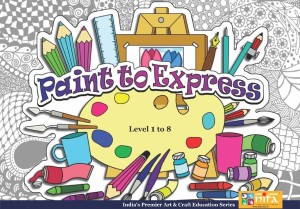Dr. Ranjini Krishnaswamy

Technology has taken over our lives completely and our style of living is something our parents or grandparents could not have even dreamt of. Our schools are bursting at the seams with students, and aspirations are at an all-time high. Neither our government-run schools nor are all private schools equipped to cope with this surge of expectation.
Sadly, I am not sure we are preparing our children to meet the expectations of this new age. Why is it so?
The answer lies in the human element – the teachers – more than the availability of infrastructure. But it is not their fault alone. Most adults are migrants to the world of technology while the children are natives. Hence their ability to negotiate the Net world is far superior to the adults.
Children are excited and eager to explore and try out new avenues. Unfortunately parents control the purse strings and so we have a lot of frustrated youngsters. The children who are in school today, will enter the world of work some 15-18 years later and no one has a clue what sort of a world that will be. Our B.Ed ,D.Ed and other teacher training programmes have not kept pace with the changing times. Hence, the teacher’s inability to overcome this gap.
We do have an idea of what the future careers may be, and the Internet is full of studies done on it. But we realise today that each of these is really a niche option and requires specialised training. We also realise that the present generation is more willing to take risks and if an option fails, they are willing to start all over again.
In such a scenario, what should be done. Maybe we can start with pinpointing the causes and then the possible solutions we can take. Having said that, what’s also important is for parents to groom their wards the right way. Only when all these factors converge can we hope to prepare today’s student to face tomorrow’s world.
CAUSES
Overcrowded classrooms
Owing to the large numbers in our classrooms, individual attention is not possible. Hence, questions with readymade answers are handed out to students resulting in rote learning, often forgotten once the exam is over.
One-upmanship among boards
The many Boards that we have – State Boards, ICSE, CBSE, IGCSE, IB and the NIOS – all seem to be falling over themselves to show that each one is better than the other. Yes, with a control on the numbers in each class, the private boards such as ICSE, IB and IGCSE seem to have an upper edge, but they cater to a very miniscule percentage of the population.
Overworked and underpaid teachers
Creativity is present in all the students, but it needs to be nurtured. Teachers are by and large overworked and most often underpaid; they lack the motivation to encourage and stimulate their students. In fact, may schools do not even encourage innovation because assessing students poses a problem.
Clueless parents
Parents play a major role in making the career decisions of students, but unfortunately are clueless about the sunrise options. They need to think beyond the doctor/engineer groove. In fact, schools face a lot of interference from parents and the government and that hampers the process of imparting education.
Corporatisation hasn’t worked
With many corporates getting into the “business of education”, I had believed that at least the quality of education would improve. It has not. All that has changed is more documentation (to cover one’s back), more processes and fancy infrastructure, but the human element seems to have gone out of schooling. Thinking about tomorrow, we have forgotten to live in today.
WHAT IS THE WAY FORWARD FOR SCHOOLS?
Any change that is going to impact the future generation needs to involve all the stake holders – the school management running the school, the government in the case of state schools, the school heads, teachers, parents and a few students too. There should a common culture and philosophy that must be made known to all. Only then can all work towards the same goal. Unless the discussion is done in an open and friendly manner without a hidden agenda, it will not work.
Get professionals to interact
We need to have an assorted variety of professionals coming and talking to our students. If possible, allow a week or two weeks internship so that pupils know what the job involves and the skills needed to succeed in the job. Let the professionals share with students their low moments too so that pupils can know what can go wrong and where. Students need to be trained to accept both success and trials not only in academics but in everything.
Get teachers on committees
Law makers need to have a vision and the courage and grit to ensure that the changes are implemented. Whenever a policy is framed, there are hardly any teachers – who are the actual executors of the programme – on the committee. Unless, the decision-makers hear the voices of the teachers who are facing the challenges while working at the grass root level, the changes will be meaningless.
Teachers need to reskill and upgrade
We are living in an age where everything is about instant gratification and people lose their jobs with a rapidity that cannot be imagined. Hence, teachers need to constantly upgrade ourselves and ensure we have the required skillset needed for the job.
Hone students’ ability to innovate
We need to develop in our students the ability to change and innovate, the capacity to accept that one can be wrong and willingness to learn, be a team player, collaborate and play by the rules, speak confidently and accept rejection with grace.
Think out of the box
If I had a choice, I would definitely include painting, dancing, music, creative writing, debating, pottery, yoga, story-telling, poetry writing and other subjects that hone creativity. In addition, I would insist on sports and financial literacy. But most important: we need to teach our students to be happy more than being successful. Science has been given so much importance that we have forgotten to be human.
WHAT PARENTS CAN DO
- Give children back their childhood.
- Restrict their tech time.
- Listen to the children – they have some great ideas.
- Encourage them when they are doing something new but do not pander to their egos.
- Correct them when they are wrong but use methods to reprimand them that do not damage their self-esteem.
- Let the schools try out experiments even if others laugh at them so long as it is not an exercise in self -indulgence.
- Travel helps in widening the mind. Take students on tours with specific objectives and outcomes. Have student exchanges.
- Have a language laboratory
- Build a science lab for trying out new experiments. Let students do this under the guidance of a responsible teacher.
- Allow pupils to interact with the best minds in the industry and have mentorship programmes.
- Rejoice in every pupil’s attempt not just the successes. Only then will the school be a hub of creativity.
- Today, parents want that all children should be given prizes or certificates whether it is sports or other school events. Never having heard the word NO, our young people are growing up to be very fragile and brittle and unable to cope with a loss or a failure. Parents must not clear the road for their children; let them ride the rough and uneven track and they will discover the right route. It may take time, but it will happen.
Schools should be places of learning and not marks producing factories or certifying bodies. None of us has seen tomorrow, so we need to trust that what is being done is for the children’s good and accept it.
ABOUT THE AUTHOR
Dr. Ranjini Krishnaswamy is an academician with over 4 decades in academia, having been involved at all levels: High School, Middle School, Higher Secondary and Teacher Training both ECCEd and B.Ed. She is the recipients of the National Award for Teachers/Principals from the Government of India. She is also a recipient of the Jijamata Puraskar for women achievers.
She has been instrumental in setting up schools, designing school curricula and working with officials in the government departments in maintaining standards of effective schooling. She has written books on Environmental Education, English Language and Poetry. She was part of the team that put the English ICSE curriculum in place.
She heads the Centre for Excellence in India for Global Scholars, a Distance-Linked Educational Programme of the Bloomberg Philanthropies, USA. She is currently Director-Education for the Dosti Foundation


















